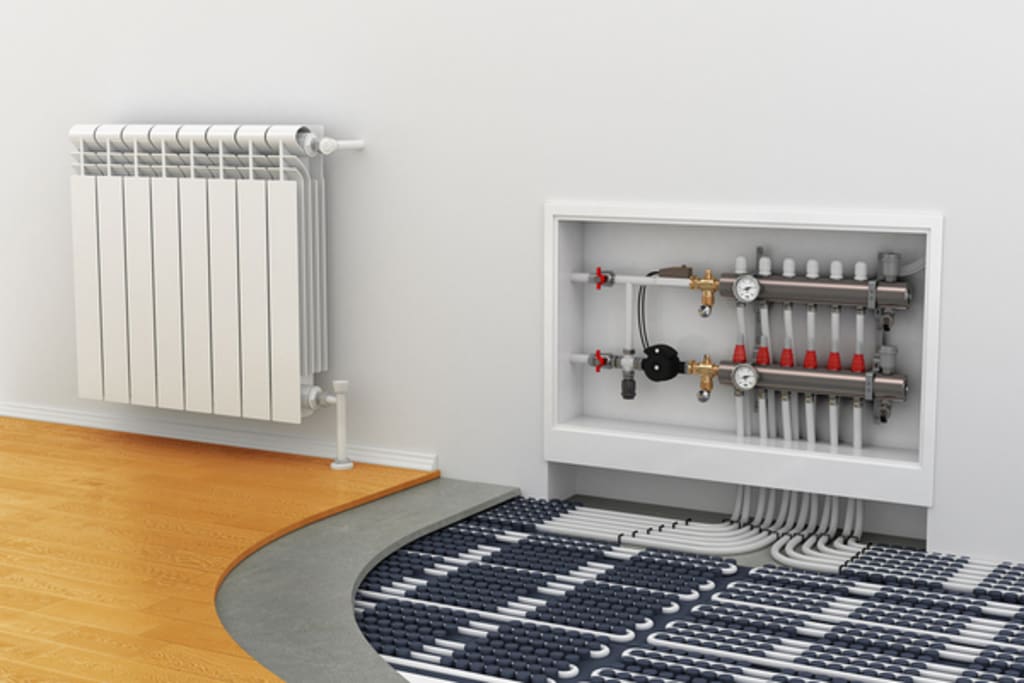7 Tips to Prepare Your Heating System for Winter
Following are some tips to prepare your heating system for winter.

Looking back into the past, and realizing how difficult it was for people to cope with harsh weather during the winters. They would spend their days cutting and collecting woods for fire. What a blessing is it to not have to worry about collecting dry woods and having to put it on fire. Isn’t that a load of work pertaining to the meagre amount of time we have in the modern day?
With the passage of time, came better ideas of heating systems like the ones used by somewhat developed nations. The Romans, for instance, were famous for their smart heating system, in which coal or other fuel was burned beneath the floor, to produce heat that would equally warm up all the rooms within a building.
Before the modern-day air-conditioning system, fireplaces were in trend. Wood was put to fire to produce heat and the harmful gases were supposed to move out through a chimney.
One of the most important things to do in order to welcome winters is to get your heating system repaired by a professional heat service provider, if it is malfunctioning.
The HVAC system is one of the most advanced systems that is installed in almost every residential or commercial facility. Let us spare a moment and thank Willis Haviland Carrier for coming up with an idea to invent the HVAC system, designed to add or remove heat, in the year 1902, keeping us warm in the winters and cool during summer.
With the arrival of winter, comes an utter need of having a well-functioning heating system and water heaters that will make sure your heart does not shiver with cold in extreme weather. Therefore, following are some tips to prepare your heating system for winter.
1. THERMOSTAT:
Find out if your thermostat is functioning properly before winter starts. You would not want to find out later when the cold breeze freezes your limbs that the controls of your heating system-thermostat- don’t function properly. It is recommended to lower the thermostat temperature when no one is at home, this will not only help you spend less on energy bills, but is also environment friendly and helps conserve energy. Moreover, set your temperature at 68 to warm up your home, and simultaneously, not over consume energy. Setting a high thermostat temperature can expedite the degradation of your system.
2. HEATING VENTS:
Check if your vents are not blocked, which doesn’t only prevent from heating up your room, but can also over-exert the heating system, causing its premature degradation. Therefore, remove any furniture or an ornament near vents to allow a constant air flow.
3. CLEAN YOUR CHIMNEYS:
Chimneys, when not in use during summers, are a welcoming place for birds to make nests to hide from cats and other predators, and can act as major obstacles blocking the passage of air to the exterior. Obstructions like a litter can also block chimneys that can cause an accumulation of harmful gases within your room.
4. AIR FILTERS:
It is imperative for your health to have your air filters replaced every time it gets dirty, so that only clean and healthy air enters the environment you and your family breathes in 24/7.
Dirt accumulated air filters are also detrimental to the heating system because it is difficult for air to flow through the narrow air passageways. Moreover, heat not entering a room properly will not warm up the air, and will increase energy consumption.
Most manufacturing companies tell you to replace air filters every 30 days. Before winter kicks in, get your heating system new air filters.
5. MAINTENANCE:
Get your heating system checked by a professional heat service provider before starting using it. This will prevent you from getting yourself in hot waters. It is a proven fact that periodically scheduled maintenance can protect your system from damaging and degrading. A professional will look for any leaks in the system and fix it, clean it, check carbon monoxide levels that are toxic to humans if inhaled. He might also want to replace a worn out, leaking pipe.
6. CLEAR EVERYTHING IN THE VICINITY OF YOUR FURNACE:
Make sure you do not have anything close to the heating furnace, which can prove to be hazardous for your safety, and can be a major cause of a fire breakout.
7. CHECK FOR ANY LEAKS:
The leaks around windows, pipes, doors, etc., are major perpetrators of not letting the heating system warm your house properly. It is always a smart way to cut down on the energy expenditure and get the system to heat up your room quickly by sealing any such leaks. There is a huge variety of sealers available in the market to help you with locking in the warm air within your home.





Comments
There are no comments for this story
Be the first to respond and start the conversation.